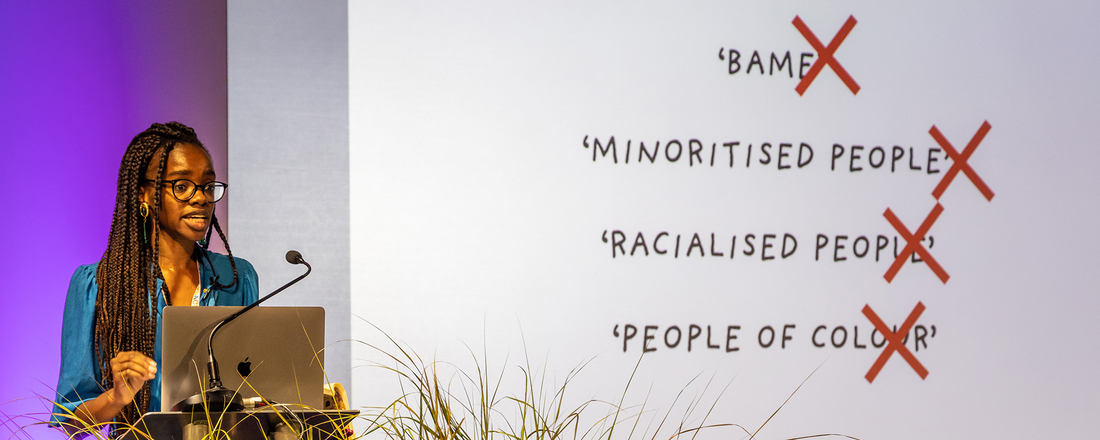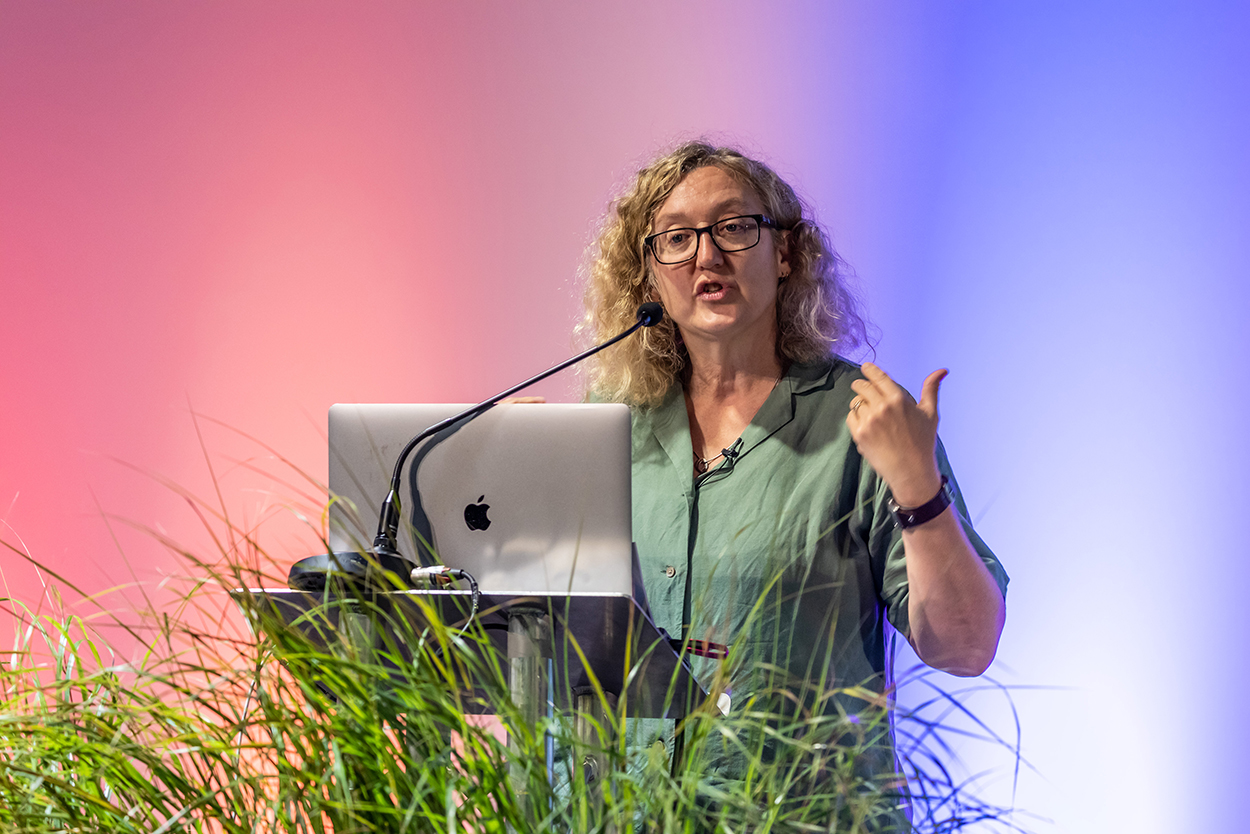Get updates from The Developer straight to your inbox Yes, please!
Gentrification: What's the alternative?
How do we genuinely level up while renewing urban places, and ensure existing communities feel the benefit? Podcast featuring Alisha Morenike Fisher and Prof Loretta Lees

“The number of people I’ve heard of who’ve died during the decanting process... the number of people who passed away because of having to move, I can’t keep track of it. For me, it’s genocide,” says Prof Loretta Lees, global expert on gentrification in her talk at Festival of Place.
Now available as a podcast, the opening keynote session from the Festival of Place features Alisha Morenike Fisher, founder of Migrant’s Bureau and scholar-activist Lees speaking about the racialised marginalisation that has taken place during the redevelopment of urban places in the UK, and its impact on communities.
Both speakers discuss the structures of racism behind gentrification, migration and displacement: Morenike Fisher focusses on the importance of language and the power of community, defining gentrification as: “Please bear with us as we tear apart your community.”
Instead Morenike Fisher believes these community should be a starting point:
“What are you investing in, if you’ re not working with the people who are already existing? We should focus on the communities first.”
Morenike Fisher also points out that catch-all terms about race such as BAME lack the specificity needed when designing for a specific community: “When we talk about race and we talk about heritage, let’s be specific. Race – you have black, multi-racial, brown, white. Heritage you have Somali, Swedish, mixed-heritage...
“How can we design for people if we’re not being specific? For strategy or investment, how do we know whether we’re engaging with the right communities?”
“We need to invest with the community and not against the community,” Morenike Fisher says.
Listen to the interview
Lees says, “Displacement must be understood in the relation to histories of racial discrimination, the destruction of ethno-cultural infrastructures and longstanding racialised inequalities.”
“For many [of those decanted] the impending loss of their home came to symbolise the collapse of their social and economic dreams of moving to the UK, the frustration of their hopes.
“For those council tenants that got to move back into their so-called regenerated estate, the estate they knew had gone, there was a newly-built mixed-use community in its place, and there were day-to-day realities of what people call social apartheid. This is rarely discussed.
“A form of social tectonics develop, where people just rubbed past each other. Some academic research has found that these new mixed-income neighbourhoods in London do not provide the greater opportunities and resources for social tenants on the box when it’s sold to you… instead there’s an increase in inequality, school segregation, constraint of housing, careers… entrapment, outflow...” Lees adds.
Morenike Fisher also points to segregation in UK cities, describing it as “one of the most pressing things I’ve seen.”
“Our cities are well and truly segregated,” says Morenike Fisher. “Some places need to be secure, safe or private, but when we look at segregation as a tool that is built out of hatred... then we have problems.”
As for alternatives, Lees points out that Community Land Trusts and community ownership are strong counters to the narrative that gentrification is inevitable.
“Gentrification is sold to us as a false choice urbanism – a choice between growth, or decline and decay. And this mantra that there is no alternative has become hegemonic,” Lees says.
And yet there are many alternatives: “Decommodification and commoning can do urban renewal and not gentrification. [You can} renovate urban places without displacing longstanding lower income groups.
“Indeed community ownership is the ultimate balk against the risk that the communities might get displaced as a place improves,” says Lees. “If the community itself owns assets, businesses and homes and can keep them at affordable prices, they can make sure they are retained for and serve the existing community.”
Sign up to our newsletter
Get updates from The Developer straight to your inbox
Thanks to our organisation members
Become a member
© Festival of Place - Tweak Ltd., 124 City Road, London, EC1V 2NX. Tel: 020 3326 7238

